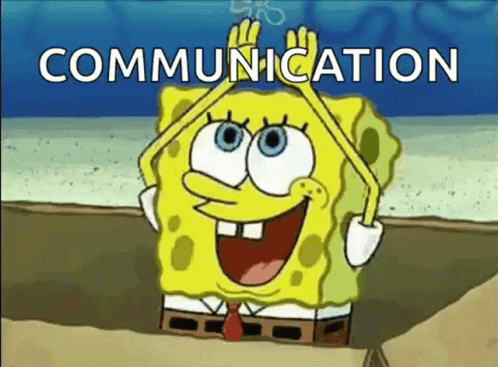How much do product managers need to understand about engineering?
Exploring the Balance between Effective Communication and Engineering Knowledge
Working with technology product management can seem daunting to some people. Essentially, you become the bridge between users and all the other teams, including engineering, marketing, design, sales, and others that your company may have.
In this context, the product person needs to develop techniques to better communicate with all areas 💁♀️. When I refer to techniques, I'm not talking about sales techniques (developing better ones) or the like, but rather learning to convey what each of them needs to know to better address user needs.
While the design team requires a better understanding of the problem and how the user will solve it through the product, the engineering team will need to understand what we should build to achieve that goal.
Now, a question that may arise is: to what extent do I need to understand communicating better, but without delving as deeply as an engineer? Well, let's explore a bit of that in this article.
You don't need to be an engineer to work with technology
One of the key points we need to demystify is that everyone working in technology or related fields must have a background in engineering or computer science. Well, that's not true.
The tech industry offers opportunities for people with different backgrounds and experiences to work in diverse teams. Building solutions requires experimentation, learning, and a lot of communication. 🧪
However, when it comes to roles focused on product management, the ability to direct efforts and understand user needs as a whole becomes essential. In this context, mastery of these technical tools becomes an advantage that facilitates the professional's daily work.
Product limitations and future 🔮
One of the benefits of understanding engineering as a product person is knowing how your product works and its inherent limitations. No technological solution is perfect, and all of them are built on some technical flaw that either hurts today or will affect the product in some way in the future.
Learning about these points helps us develop more product-oriented and engineering-oriented planning and ensures that the solution grows more sustainably.
It's not enough to create various features that will bring in millions of users if the platform crashes or doesn't function as expected when they try to use it.
Moreover, learning about engineering can provide us with insights into potential improvements and untapped niches.
Communication
Communication is essential in our field. It constitutes nearly 90% of what we do, and being skilled in it is crucial. Knowing how to communicate the needs of different stakeholders is extremely necessary to ensure the product evolves by addressing the right pain points at the right time.
At this point, having some knowledge of engineering is very helpful when communicating with engineering teams. Understanding what endpoints are, how databases work, and the communication between services are some things that make problem-solving related to the product easier in day-to-day work.
It's not about knowing how to build the backend of an API, but understanding how it functions behind the scenes, who we need to make it work, which services we call to register a user, why it takes the time it does to perform a certain action—these are things that can be understood with not much technical knowledge.
The tech lead 🦁
One of the people you'll interface with the most regarding product engineering is the tech lead. They lead the engineering team and have more business context than most developers.
The tech lead bridges the gap between the business problem or solution (or at least the test of it) and how we will build it. They are responsible for determining the best engineering approach based on the business context we're in. They define the technologies, structure, and architecture of the solution.
In teams where there's no tech lead, you can seek this context from more experienced engineers or direct leaders, such as engineering managers or even a CTO (depending on the company's size).
Answer (a bit ambiguous)
The truth is that, in the end, it will depend on the context you are in. For most product managers, it won't be necessary to be an engineering expert, but simply to understand how the product works, who we communicate with, what we need to solve user problems, and what limitations our software has (yes, you need to know this to be more grounded) 🤳.
However, in the context of people working on more technical products (data products, integrations, APIs, and others), these individuals need to have a slightly deeper understanding of engineering. Since the product is fundamentally centered around engineering, it's not enough to understand just the end user; we need to go further and understand how we're addressing the problem itself.
Do you need to become an engineer? Not necessarily (unless that's your goal, of course). But, in my humble opinion, knowledge is never a waste, and it's always valid to explore new contexts for learning.
Learning about engineering will simply make you a better product person who communicates more clearly and understands the limitations and evolution of the product you manage.
Step out of your comfort zone and read some documentation! Hehehehe.
I hope I have helped in some way.
See you in the next post.




Nice piece. Indeed it's a matter of context to which extent, but having some understanding is probably useful nearly in all cases.